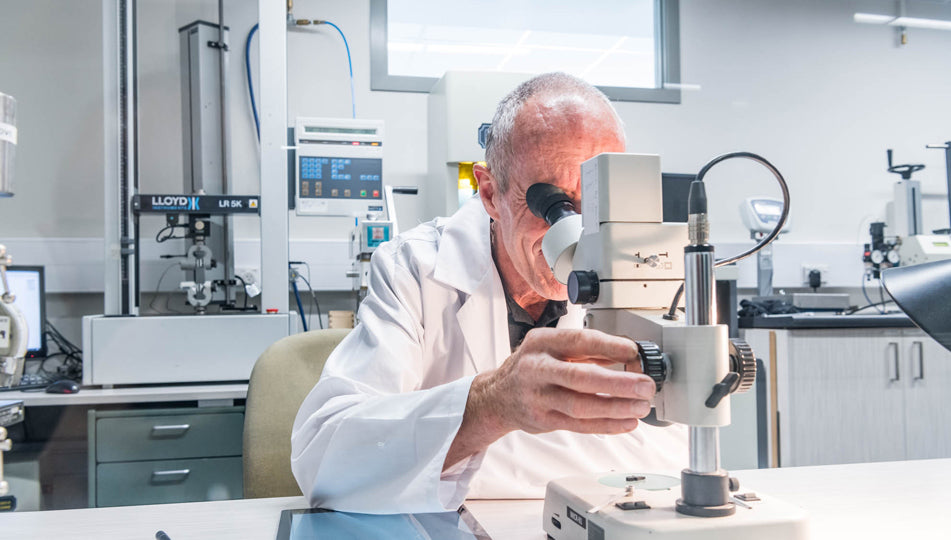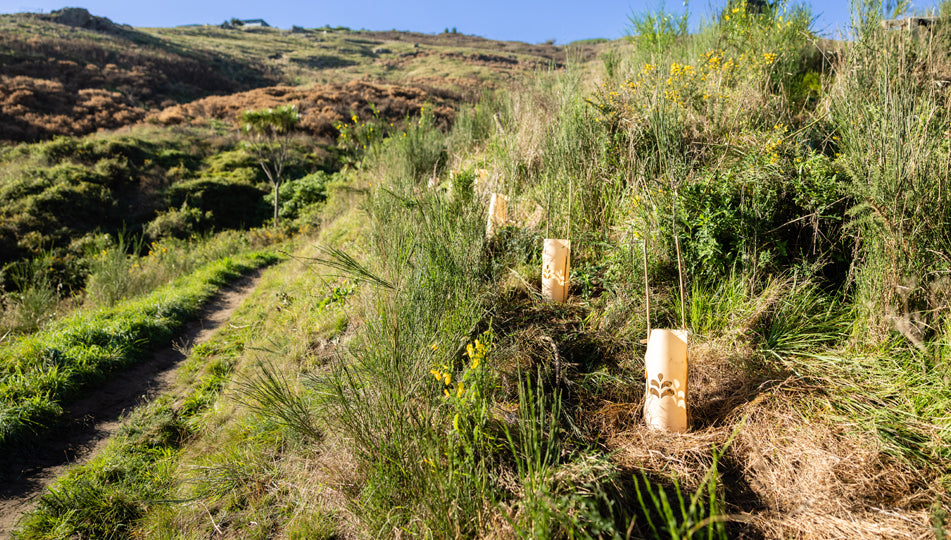Features of PolyNatural®
Yes PolyNatural® materials are bio-based.
'Bio-based’ means it is made from biological materials that either
occur naturally or are synthesized organic compounds that exist in
nature. Often these biological materials come from waste streams of
other manufacturing processes, or are synthesized organic compounds. All
these are renewable resources, unlike those from fossil origin, which
is not renewable.
Yes PolyNatural® materials are bio-based.
'Bio-based’ means it is made from biological materials that either
occur naturally or are synthesized organic compounds that exist in
nature. Often these biological materials come from waste streams of
other manufacturing processes, or are synthesized organic compounds. All
these are renewable resources, unlike those from fossil origin, which
is not renewable.
Yes PolyNatural® biodegrades.
How long it takes is situation dependent. It has no adverse effects
on the environment and is naturally compostable without requiring a
specialised composting facility.
Yes PolyNatural® biodegrades.
How long it takes is situation dependent. It has no adverse effects
on the environment and is naturally compostable without requiring a
specialised composting facility.
Factors that influence the rate of PolyNatural® biodegradability are the
shape and thickness of the product. Environmental factors including
humidity, pH-value, temperature, UV-radiation and surrounding
microflora.
Factors that influence the rate of PolyNatural® biodegradability are the
shape and thickness of the product. Environmental factors including
humidity, pH-value, temperature, UV-radiation and surrounding
microflora.
The main raw material for PolyNatural® is manufactured from renewable
resources, hence, they do not deplete limited fossil reserves.
PolyNatural®’s material is truly circular; therefore, these biomaterials
are an integral part of the closed carbon cycle of our planet; this
means that when PolyNatural® biodegrades it does not further increase
the atmospheric concentration of CO2 in analogy to other natural
materials.
The main raw material for PolyNatural® is manufactured from renewable
resources, hence, they do not deplete limited fossil reserves.
PolyNatural®’s material is truly circular; therefore, these biomaterials
are an integral part of the closed carbon cycle of our planet; this
means that when PolyNatural® biodegrades it does not further increase
the atmospheric concentration of CO2 in analogy to other natural
materials.
Yes, but only if you send it back to us at PolyNatural®. Before you send
it please contact us. When it's returned we can either use it as
feedstock for the process or use it in the manufacturing process.
Yes, but only if you send it back to us at PolyNatural®. Before you send
it please contact us. When it's returned we can either use it as
feedstock for the process or use it in the manufacturing process.
PolyNatural® exerts no negative effect on the biosphere surrounding
them (e.g., on living organisms, cell lines, living tissue, ecosystems).
In fact, it acts act as energy/nutrition source to microorganisms and,
therefore has a positive effect on the environment.
Soil is a complex blend of organic matter, minerals, water, air, and
microorganisms. Those microorganisms will use PolyNatural® as a feed
source and a healthy population of soil microbes can help reduce
pathogens that cause plant diseases. Soil microorganisms also break down
organic matter into nutrients that plants can use.
Organic matter in the soil can store water like a sponge. Soil
rich in organic matter can store up to 30% of its weight in water. Soil
contains 25% of our planet's biodiversity. Soil is able to filter and
trap environmental pollutants, helping to prevent them from leaching
into the groundwater.
PolyNatural® exerts no negative effect on the biosphere surrounding
them (e.g., on living organisms, cell lines, living tissue, ecosystems).
In fact, it acts act as energy/nutrition source to microorganisms and,
therefore has a positive effect on the environment.
Soil is a complex blend of organic matter, minerals, water, air, and
microorganisms. Those microorganisms will use PolyNatural® as a feed
source and a healthy population of soil microbes can help reduce
pathogens that cause plant diseases. Soil microorganisms also break down
organic matter into nutrients that plants can use.
Organic matter in the soil can store water like a sponge. Soil
rich in organic matter can store up to 30% of its weight in water. Soil
contains 25% of our planet's biodiversity. Soil is able to filter and
trap environmental pollutants, helping to prevent them from leaching
into the groundwater.
PolyNatural® has a wide range of applications across horticulture, viticulture and more. Some of our key products include Wool Weed Mats, Wool Weed & Mulch Rolls, Plant Protectors and Vine Clips. Check out the full range of our PolyNatural® products here.
PolyNatural® has a wide range of applications across horticulture, viticulture and more. Some of our key products include Wool Weed Mats, Wool Weed & Mulch Rolls, Plant Protectors and Vine Clips. Check out the full range of our PolyNatural® products here.

Laboratory testing and evaluation
As part of our product development process we do laboratory testing
to get an understanding of how the biotechnology will perform. These
tests can include:
- Benchmarking the characteristics of the material against the standard petrochemicals.
- The rate of biodegradation.
- The strength of the material.
- The processing of the material.

Prototyping - real world experimentation & trials
Using our mahi tahi (collaboration) to do real world testing and
experimentation is a major part of our product development strategy.
Currently going through a review process to determine the performance of
different formulations are our PolyNatural® Pots. This process can take
months or even years for us to evaluate the performance of our
potential products.
